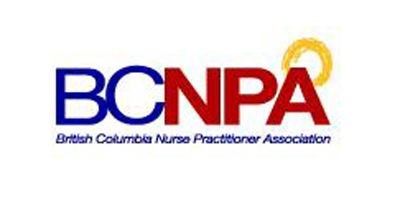Proposed legislative changes will make it easier for nurse practitioners to serve their patients, but they don't go far enough according to the group's professional association.
As part of the Miscellaneous Statutes Amendment Act introduced in the legislature this week, nine provincial laws will be amended to allow nurse practitioners to sign off on paperwork that previously needed a physician's signature to complete.
"This will be a great opportunity for folks who live in rural and remote communities to not have to travel a great distance to find seek someone else [to complete the paperwork]," BC Nurse Practitioners Association president Stan Marchuk said. "Or for the nurse practitioner to find someone else who has the authority to sign off on those legislative requirements."
If passed, the legislation would allow nurse practitioners to fill out WorkSafeBC documentation, rather than have to hand it off for a physician's approval. Similar changes are being made to acts regulating family law, vital statistics and youth justice. But Marchuk said dozens of other acts must also be amended to reflect the work nurse practitioners are able to do and reduce the barriers and duplication in the medical system.
He said nurse practitioners often try to complete a paperwork task only to find out the relevant laws have yet to be updated.
"It is very frustrating and it takes quite a bit of extra time and man hours," Marchuk said. "I don't think it's a good use of healthcare dollars."
Nurse practitioners were established in B.C. in 2005. They receive more specialized training than registered nurses and can perform more tasks. They are used around the province in many different capacities, but in the north they've been particularly vital in helping bridge the gap in care that can exist when there is a shortage of physicians.
Since many provincial laws were written prior to nurse practitioners being introduced in the province, those laws need to be changed in order to allow the nurse practitioners to work up to their full potential. The government made a first batch of changes in 2011 and this week's legislation builds on that but Marchuk said there should have been a plan from the outset to fix all outdated legislation.
"We're nearly nine years in and only within the last two to three years have we started addressing the issues," he said, noting delays in passing legislation could be attributed in part to the cancellation of fall sittings in recent years.
The provincial ministry of health was given an opportunity to respond to the concerns raised by Marchuk but were unable to respond in time to meet The Citizen's deadline.
Among the dozens of pieces of legislation his association believes should be updated include the Mental Health Act, the Gunshot and Stab Wound Act and the Human Gift Tissue Act.
In addition to concerns about legislation preventing them from doing their jobs, Marchuk said nurse practitioners would also like to see the government provide stable funding. Unlike most physicians who are paid on a fee-for-service model, nurse practitioners are generally salaried workers employed by health authorities or other health agencies.
"We have what we call drive-by funding," he said. "Funding that comes in episodic periods when it's convenient for government."
He said the lack of consistent funding is forcing some nurses who get their upgraded training to remain underemployed as registered nurses while other newly trained nurse practitioners are leaving the province for jobs.
"If we really want to think about British Columbians and how we provide care and access, we need a model that's there all the time and is going to sustain the health of individuals," he said.


